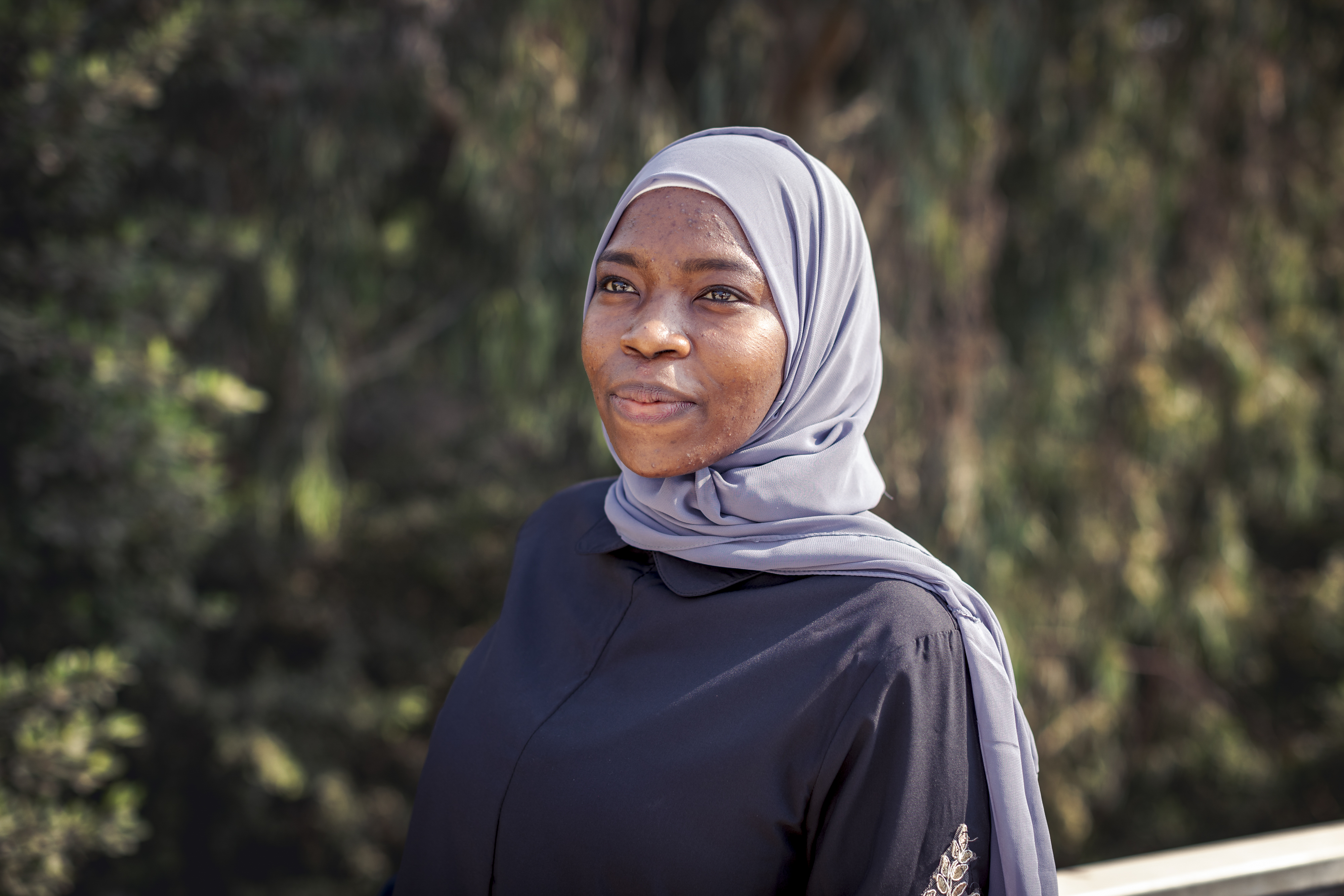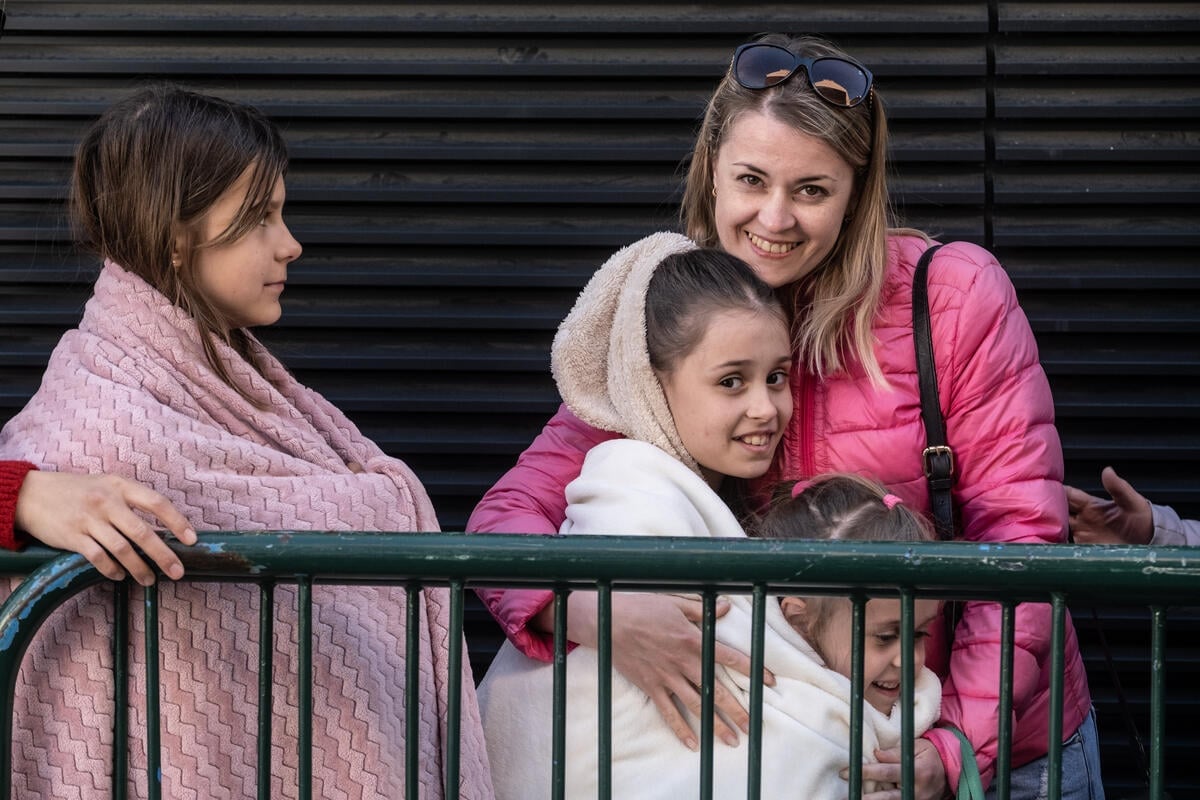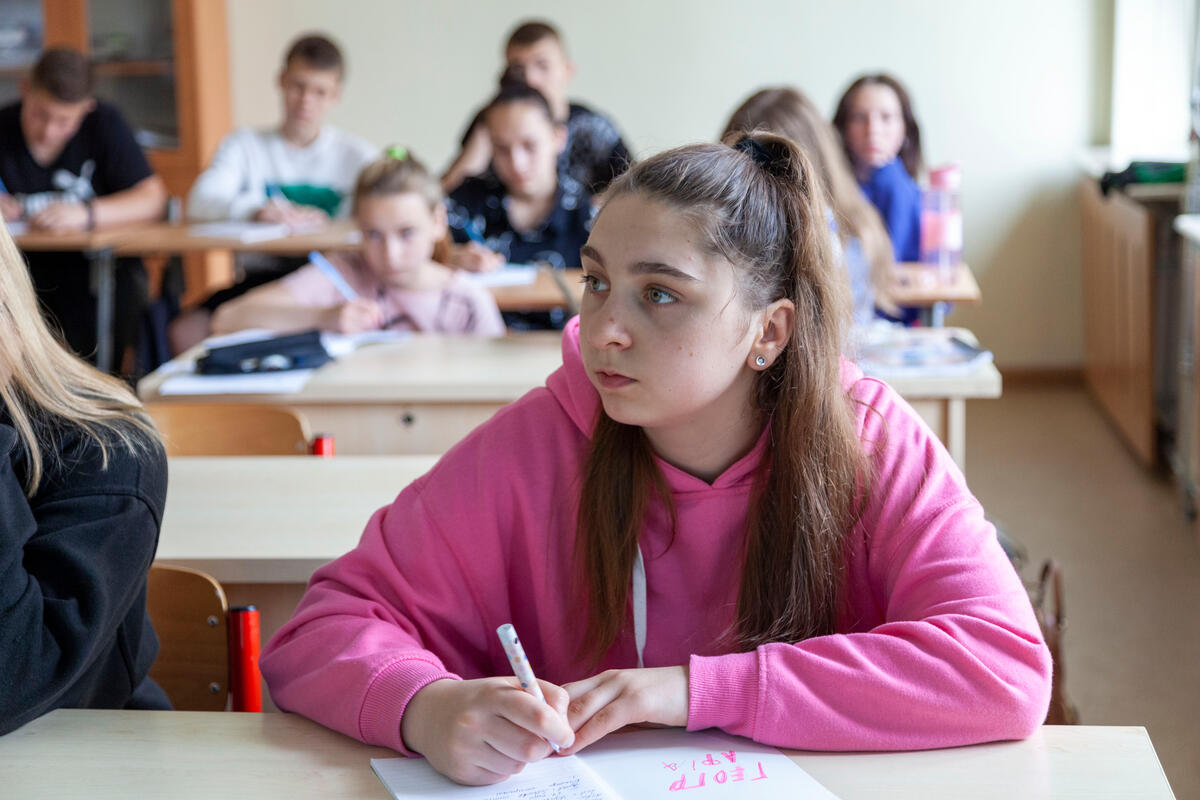German scholarship helps train refugee teachers in PNG
German scholarship helps train refugee teachers in PNG

WEWAK, Papua New Guinea, Dec 8 (UNHCR) - With the help of a German programme set up to commemorate Albert Einstein, a group of young refugees have just completed their first year as DAFI scholars at a teachers' college in Papua New Guinea (PNG). This brings them one step closer to helping other youths in their refugee settlement.
The worldwide DAFI Scholarships Programme, funded by the German government's Albert Einstein German Academic Refugee Initiative, promotes self-reliance among refugees by helping them access tertiary education in their country of asylum and boost their chances of future employment. Since 1992, the German government has donated, on average, more than $2 million every year to UNHCR for this programme.
In PNG this year, the programme focuses on helping young refugees become qualified teachers so they can in turn teach the younger children in the remote refugee settlement in East Awin. The scholarships are awarded on academic merit and cover tuition and boarding fees, books, clothing, medical and other living costs, as well as travel between East Awin and Wewak, where four refugee scholars are studying at St Benedict's Teachers' College.
Sister Maureen Sexton of the Diocese of Daru-Kiunga, UNHCR's implementing partner for the scheme, reports after a recent visit to Wewak that all four students are doing well in their studies, with above average results.
The four scholars came to PNG as young children with their parents in the 1980s from the Papua province of Indonesia (formerly Irian Jaya) and attended school in various villages of East Awin before completing secondary school in the town of Kiunga, in Western province. Their parents were part of a wave of refugees who fled across the border from Indonesia in 1984 following a crackdown on pro-independence activities.
Janu Amuan was about four months old when his parents fled Papua province, trekking through mountains, rivers and thick jungles before settling a while in the border area of Katawim on the Fly River, PNG. In 1992, following the death of his mother, he moved to the refugee settlement of East Awin and soon after, started school at the West Montfort Primary, in Iowara village. Today, he has become the first of the four DAFI scholars to graduate from his teaching studies. Janu's favourite subject is social science, "because it deals with people - we look at contemporary issues and how people behave," he said.
When he first went to Wewak, Janu found it hard being away from his family for the first time. "It took a while to get used to boarding as I was a day student at my secondary school. It's also scary when we go into the town (Wewak), especially at night," he said. "What I like is learning Tok Pisin (the lingua franca of PNG). It is a fascinating language to learn. And I enjoy meeting and making friends from all over the country."
Twenty-year-old Juliarius Petrus' family come from the same district in Papua province as Janu's - Mindiptana. In 1984, his family walked in heavy rain through the jungle, and also settled along the border in Katawim, PNG, before moving to East Awin in 1991, with the help of UNHCR. Like Janu, Juliarius began his schooling at West Montfort Primary.
Juliarius has found his first year of teacher's college very interesting. "We are gaining knowledge and experience all the time, which will help us and give us skills to help our people, especially in terms of teaching," he said. While he likes all his subjects, English is his favourite: "It helps me communicate well with other students in the class."
He is looking forward to educating his own people. "I will make sure there are more teachers," he said. For his community, Juliarius would like to help them understand the importance of sending their children to school. "I will encourage parents to back their children in education, because the future of our country depends on the next generation."
East Awin was designated by the PNG government in 1987 as a settlement area for refugees from Indonesia's Papua province. About half of the current population of 2,700 are children under 18 years of age but there is a shortage of qualified teachers willing to work in the remote location. Upon graduating, the four DAFI scholars will return to teach in the Catholic Agency schools of East Awin and help the younger generation of refugees get a good education and boost their opportunities.
In particular, the scholarship programme can be promoted as an important incentive for a number of female students from East Awin now in years 10 and 11 at high school to complete their schooling and become future candidates for the scheme.
"With the first DAFI scholars now well on their way to becoming teachers, it's an important incentive for the girls to remain in school and finish year 12, when they might otherwise have dropped out," said Sister Maureen. She explained that the small number of girls in year 12 is a common phenomenon in PNG, not just among refugee children. She said only five of the 30 students from Western province studying at St Benedict's are women.
The DAFI scholarship sits alongside another project to encourage girls to stay in school. "Providing role models is an important incentive for young girls to stay in school - to show it's possible to forge ahead with an education and then find a job with meaning," said Sister Maureen.
In 2005, the DAFI programme will continue to support the three remaining scholars in their second year at teacher's college. Four new scholarships will be offered - three to teaching students (including two young women), and one to an agricultural science student.
By Ariane Rummery
UNHCR Australia









